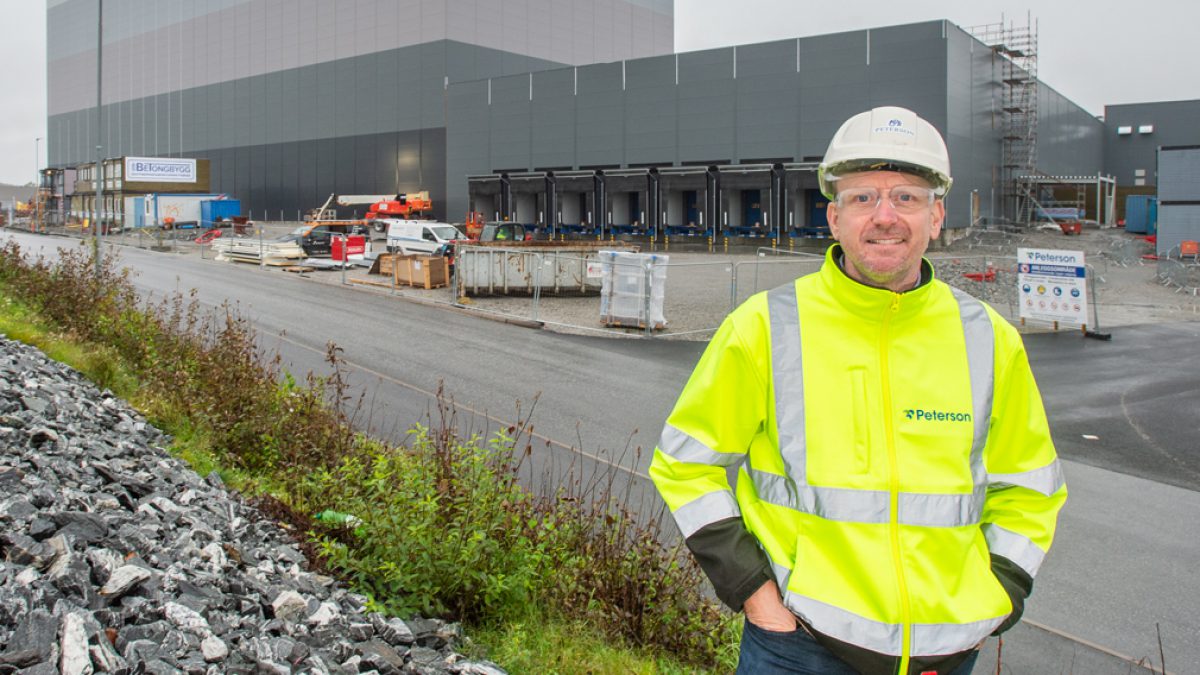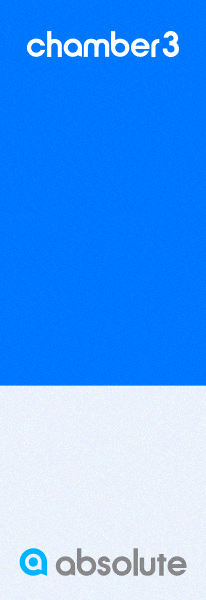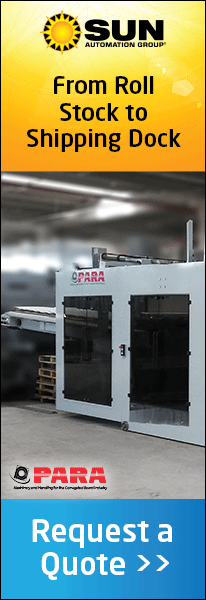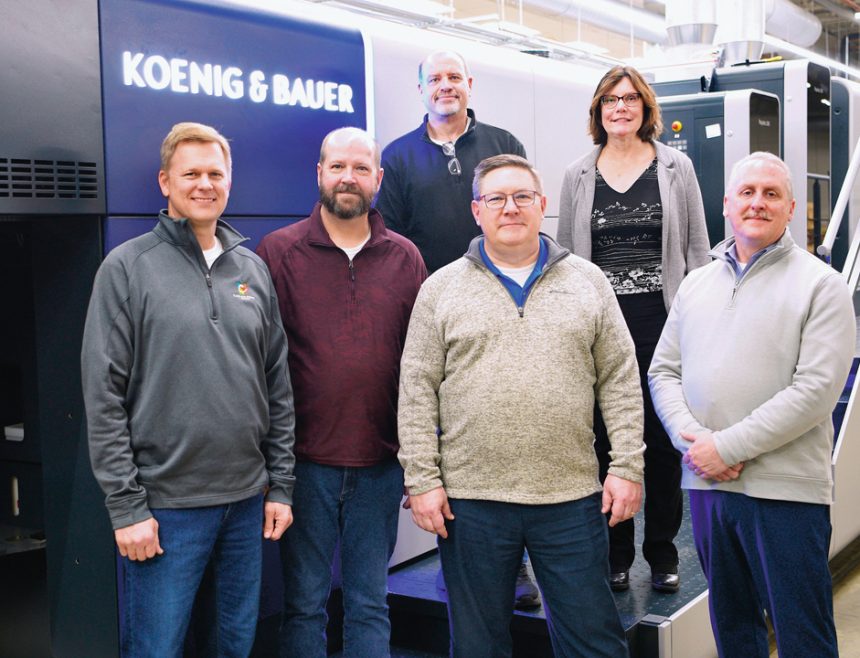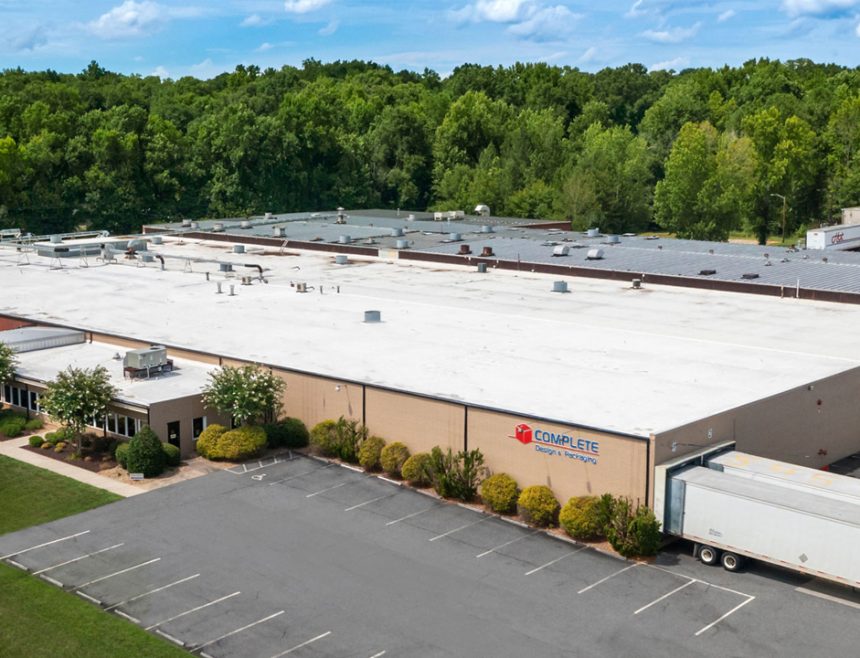Peterson, VPK’s Scandinavian packaging division, has released more details of its new production site in Halden, Norway. Incorporating Industry 4.0 principles such as artificial intelligence learning, a high degree of advanced automation and carbon neutral operation, it will be one of the most technologically advanced packaging plants in the world.
CO2 neutral production
The new site in Halden —which is to take over the current activities in nearby Sarpsborg — is designed to be fully CO2 neutral, using biogas for its steam production and heating. This biogas will power the boiler, generating steam for the corrugator. As more trucks are likely to run on biogas in the future, these will also be able to refuel at the local tank installation.
As biogas is generated through digestion of organic waste, it provides an entirely carbon neutral energy source. The energy efficiency will be even further improved thanks to an innovative heat recovery system on the corrugator. This will allow the building to be heated by residual heat. The use of organic waste to generate power, while making use of heat recovery, is an outstanding example of how a closed, circular system improves energy utilisation and reduces environmental impact.
“The entire set-up of the plant aligns perfectly with our company’s commitment to fully circular packaging solutions, produced with 100% renewable raw materials,” said Dan Johannessen, Peterson’s Managing Director.
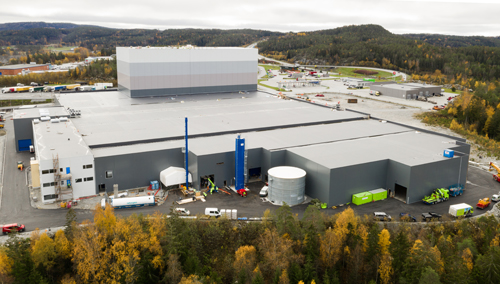
Worldwide first
In addition to the plant’s advanced level of energy efficiency, the site will also be equipped with cutting-edge machinery. It will be the first production unit in the world to operate Mitsubishi Heavy Industries’ ‘Next Generation’ corrugator, integrating pioneering artificial intelligence.
The corrugator uses machine self-learning to analyse sensor data, implementing a model to rapidly and accurately detect machine settings in order to improve the quality and the productivity of the corrugator, reducing operator interventions. Moreover, signs of machinery failure can be detected prior to actual breakdowns, helping to reduce downtime in the plant.
“MHI has been developing the use of artificial intelligence in our laboratory in Japan with the target to reach high levels of productivity and quality on our corrugators. We think that this corrugator together with the use of artificial intelligence can be the first of a new generation of corrugators with a new way of producing corrugated board,” said Giovanni Bettini, Sales Director, Mitsubishi Heavy Industries Europe.
The converting of the board also follows the latest technologies. One particularly impressive and beneficial feature is preheating of the board before printing. This will enable inks to penetrate better and will lead to improved printing quality as well as lower energy consumption.
“The Halden production site will be unparalleled in the Nordics, and beyond. Everything is state-of-the-art and built with the most up-to-date technologies. The location, next to the E6, is absolutely perfect and allows us to remain in the Østfold region, close to the current Peterson site. We are thrilled about this new and exciting chapter in Peterson’s long history,” said Johannessen.
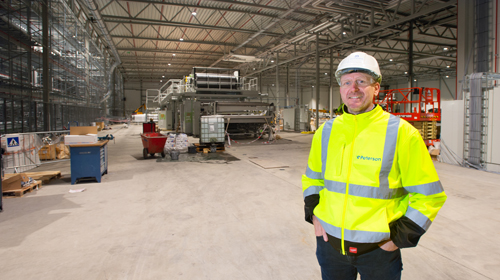
Dan Johannessen in front of corrugator and four level WIP field during works in progress.
Recruitment and training
As a result of the extensive automation, a total workforce of approximately 130 people will work at the new facility. Major redundancies were avoided, as part of Sarpsborg’s current workforce will take retirement. On the other hand, additional recruitment of specific profiles is expected.
Peterson has also invested significantly in training programs. To prepare the teams for the new, modern machines, the main operators have completed training courses in VPK companies in The Netherlands, Sweden and England to acquire the necessary on-site knowledge.
The first boxes for customers are due to roll out from Halden in January 2020. Official inauguration of the site is scheduled for May 2020.

